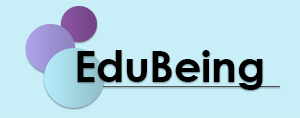Dimension 1: Social
Started by elinsenmeyerelinsenmeyer
-
I think, for the most part, social media has become a tool through which people feel comfortable expressing their thoughts and feelings about everything. This means that we often feel we need to agree or adjust our own feelings about something to match the norm or trend. I think this feeling contributes to the shaming that is so common because everyone feels the need to jump on the bandwagon, so to speak – if you don't shame someone for something they said, then you must not care about this issue. And if someone isn't brought down for their shameful act, then justice has not been served. By joining in a fight that you know so little about, it is easy to become, as Ronson says, an "unpaid shaming intern," giving fuel to a fire when you may not even know what exactly your burning.
-
Social media does allow us to expose "political correctness" to many of those who would otherwise be ignorant. This is important for the development of society – we cannot function if we cannot understand each other. And social media allows everyone to share their perspective, which opens up endless opportunity for people of different walks of life to learn and adapt their understandings of ways the world works. This can backfire, however, when we begin to speak for each other.
Just recently, an incident occurred with a cast member on SNL – he made some jokes about China, and the internet (as usual) reacted with ferocious demands to have him fired. When SNL did as the internet asked, presidential hopeful Andrew Yang, who himself is of Chinese descent, was asked what he thought about the jokes – he simply said that he did not believe SNL needed to fire the cast member. The internet then chose to get mad at Yang for not being offended… and yet he is the one who is Chinese. He is the one who can decide for himself whether or not the statement required justice to the extent of firing. And the reactions from the internet were many people who were NOT Chinese.
So why can those who are not affected by the statement decide how those who ARE affected need to respond? I think Ronson puts it well when he says that we react this vehemently to ill-phrased jokes and comments because we personally feel shame over something – Bill Maher recently did a segment on this where he described how white people love to feel bad about being white … this does nothing to help stop racism, but it does make white people feel better about their privilege if they denounce it. -
I think there are a lot of nice "places" on the internet, you just have to actively seek them out. There are positive ways of interacting on social media and you can find those places with ease. You also have to be prepared, however, to uncover the ugly bits of the internet along the way. I think the way one approaches social media should be through the lens of "reappraisal," like the article on Emotional Regulation and Social Wellbeing describes. Try not to automatically see something in a negative light – instead, try to interpret someone's tweet or instagram post in a new light and see if there is a misunderstanding occurring. Taking a step back and reassessing a post can allow you to think before you react, and save you from automatically antagonizing someone. If we all approached social media in this way, there might be actual conversation happening, actual sincere apologies and corrections, instead of rabid words firing back and forth without forgiveness or opportunity to correct mistakes.


